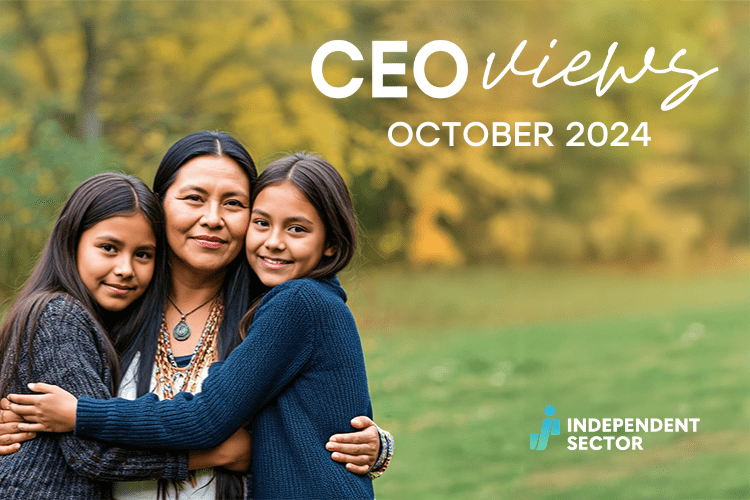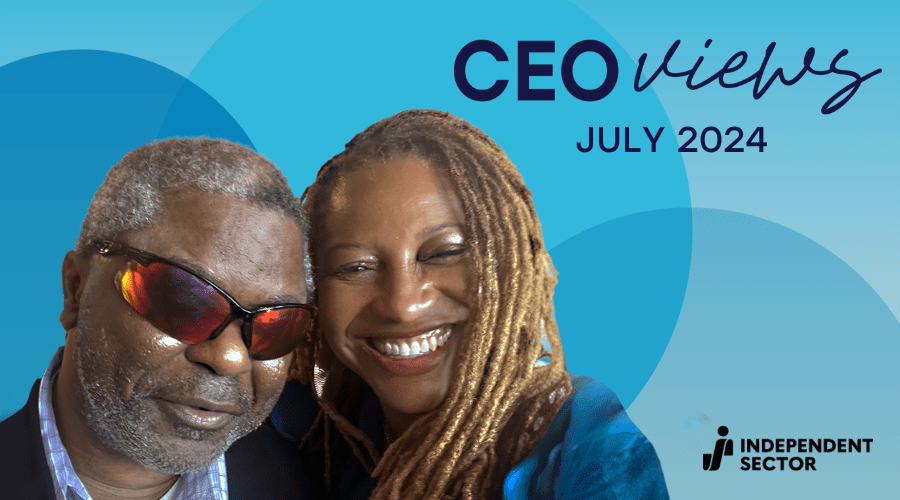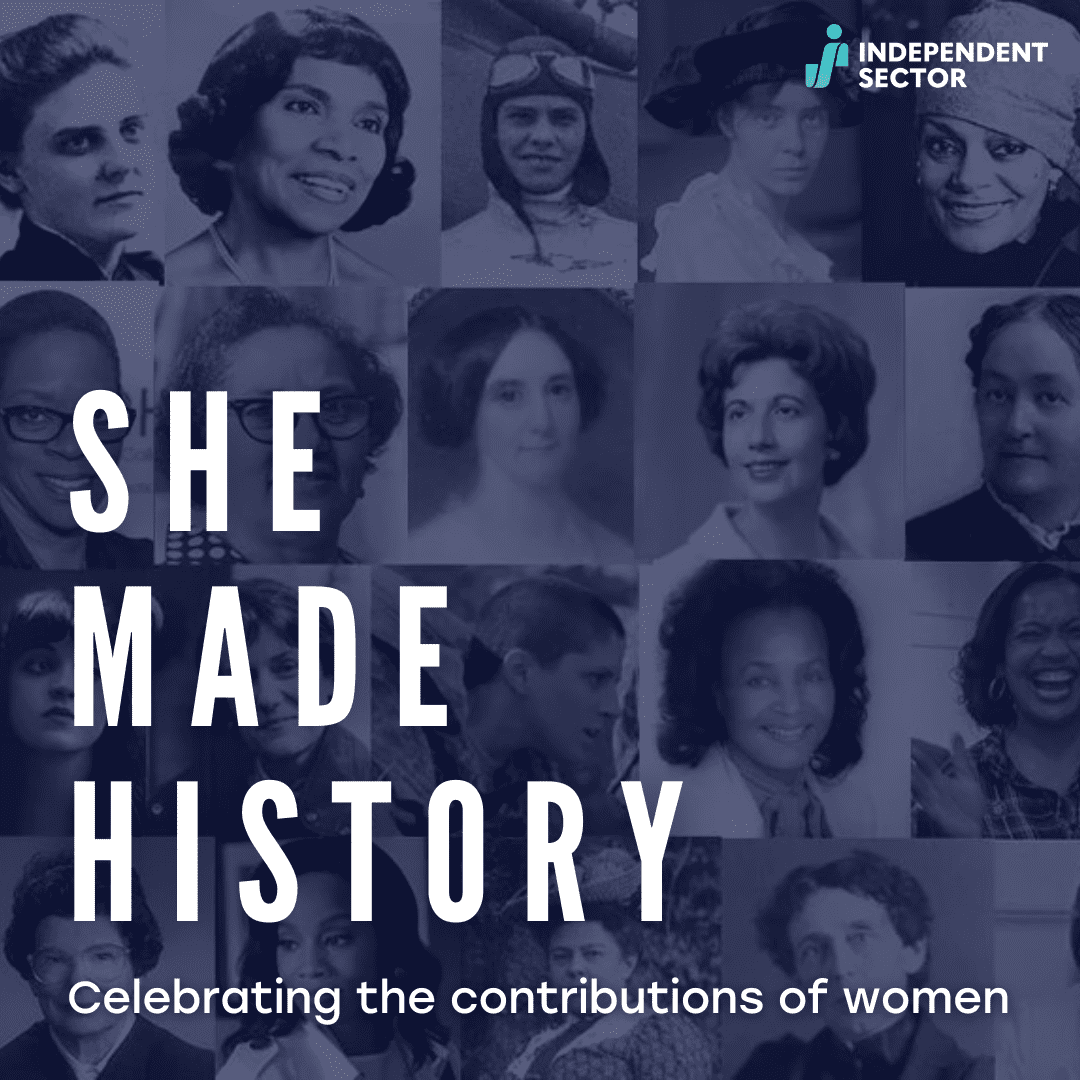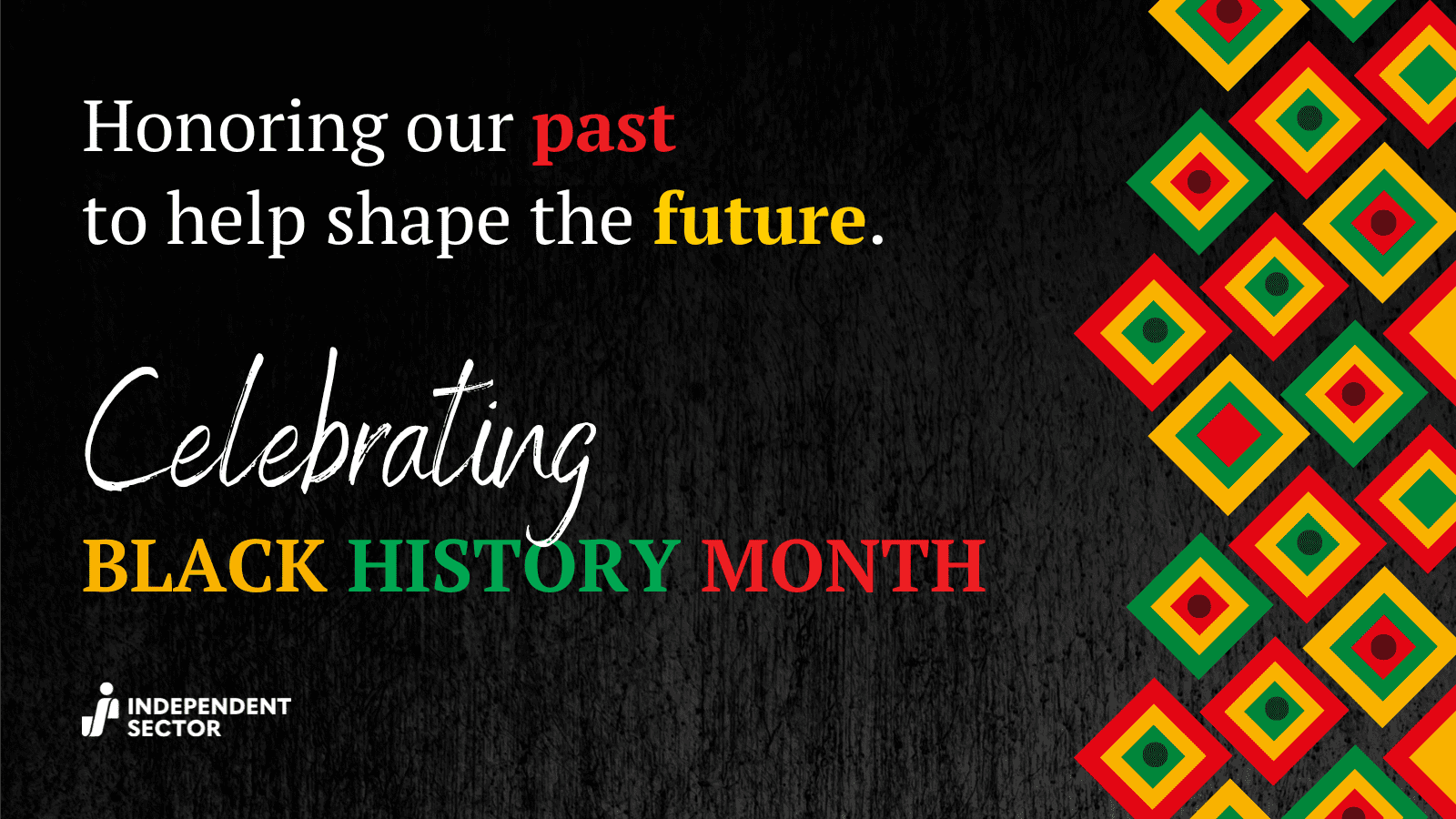As we honor National Hispanic Heritage Month and Indigenous Peoples’ Day this October, I want to celebrate the Latinx and Native leaders driving impact in the nonprofit and philanthropic sector. These changemakers are shaping our future, improving lives, and strengthening communities across our nation.
At Independent Sector, I’ve had the privilege of learning from our dedicated board members — like Tony Tijerino and Janeen Comenote — about Latinx and Native Leadership.
Tony, president and CEO of the Hispanic Heritage Foundation (HHF), recently shared a fascinating statistic with me: Over the next decade, 78% of net new workers in the U.S. will be Hispanic. Yet, Hispanic and Latinx workers remain underrepresented in nonprofit roles and nonprofit CEO positions. We also know that Hispanic nonprofit workers earn less than white workers and are twice as likely to experience financial hardship. These gaps present a challenge and a call to action for our sector to create more inclusive pathways for Hispanic and Latinx workers and leaders.
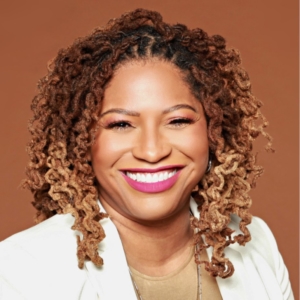
Dr. Akilah Watkins
When I attended the HHF’s 37th Annual Hispanic Heritage Awards in September, I was struck by how Tony and his team celebrated the contributions of Afro-Latinos. It was a moment that resonated with me, as someone with Afro-Cuban roots. It reminded me that everyone has their own family story and individual experience, and that Latinx identity is beautifully diverse. We must be intentional about creating spaces where that diversity is celebrated and represented within our sector.
As the Hispanic and Latinx population grows, so does its power and its leadership potential. When we look at our nonprofit workforce, the questions for us as a sector are: How are we building bridges? How are we ensuring that Hispanic and Latinx leaders are represented at all levels, and positioned to succeed?
Equally important is what I’ve learned from Native leaders like Janeen Comenote, executive director of the National Urban Indian Family Coalition. During my cross-country Listening Tour, I had the opportunity to meet with Janeen and other leaders in Minneapolis to discuss the unique challenges facing urban Indian communities — a significant but often ignored section of the U.S. Native population. Our country’s history of violence and erasure of Indigenous peoples is something we are still reckoning with, and it continues to affect opportunities for urban Indian communities today.
What stood out to me was the deep, personal connection these leaders have with their communities. The conversations we had went beyond organizational needs — they brought the voices and faces of community members into the room, reminding us that our work is not just about capacity-building but about real lives and stories. Native nonprofits embody community-building at their core, and their advocacy efforts are a model for how the nonprofit sector can merge cultural identity with highly organized, impactful work.
There is much we can learn from Native nonprofits, especially their approach to coalition-building and shared support models. These practices not only strengthen their own work but also offer valuable lessons for our entire sector on collaboration and on the power of public policy advocacy grounded in community.
As we reflect on Hispanic Heritage Month and Indigenous Peoples’ Day, let’s commit to learning from and uplifting Latinx and Native leaders. Their work is vital to the future of the charitable sector, and it’s our responsibility to ensure that our organizations are places where their contributions are celebrated and where they have the opportunity to lead.
Dr. Akilah Watkins is president and CEO of Independent Sector.
